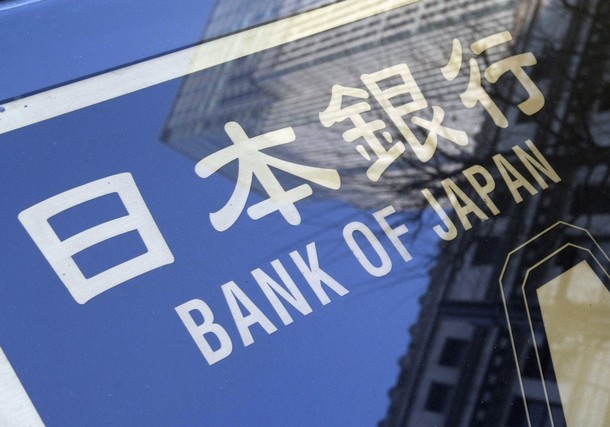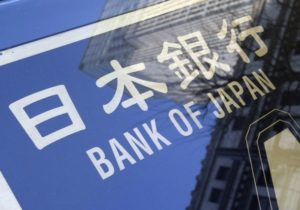By Toru Fujioka and Masahiro Hidaka With assistance by Connor Cislo, Yoshiaki Nohara, Yuko Takeo, Kazunori Takada, Go Onomitsu, Gearoid Reidy,
By Toru Fujioka and Masahiro Hidaka
With assistance by Connor Cislo, Yoshiaki Nohara, Yuko Takeo, Kazunori Takada, Go Onomitsu, Gearoid Reidy, Shoko Oda, and James Mayger
Source: Bloomberg.com
- All 49 economists surveyed forecast no change on Friday
- New deputy governors set to join policy board this month
The Bank of Japan stayed the course with its monetary stimulus on Friday at Governor Haruhiko Kuroda’s final policy meeting before his new term begins next month.
The BOJ kept its yield-curve control settings and asset purchases unchanged, a result forecast by all economists surveyed by Bloomberg.
And with inflation still far from the BOJ’s target, Kuroda made it clear that the current stimulus program will remain in place for a while. “We’re not thinking at all about weakening the degree of easing, or changing the current monetary easing policy framework, before we achieve 2 percent,” Kuroda said during a news conference.
This puts the BOJ further behind its global peers, who are either raising interest rates or turning toward normalizing policy. The European Central Bank on Thursday unexpectedly dropped a pledge to ramp up bond buying if the economy deteriorates.
With a stronger yen threatening progress on inflation, economists have pushed back their forecast dates for changes to the BOJ’s stimulus. The currency has gained around 5 percent this year and last week it touched the strongest level since November 2016.
“Still-low inflation and growing external risks will keep the BOJ on a steady course in the coming months,” said Bloomberg Economics’ Yuki Masujima. “The BOJ may see some flexibility on its yield curve targets while it’s still in the process of driving inflation to 2 percent.”
Kuroda told reporters that, in theory, the central bank could adjust its targeted yield for 10-year Japanese government bonds.
In its policy statement, the BOJ again said inflation expectations have been “more or less unchanged.” It also repeated its view that domestic demand is likely to follow an uptrend, with inflation rising toward 2 percent, mainly due to an improvement in the output gap and higher medium- to long-term inflation expectations. Housing investment has been weakening somewhat, it said.
The policy vote was 8-1, with Goushi Kataoka again dissenting.
Kataoka said he saw a low possibility at this point that inflation would rise to 2 percent and argued for additional easing measures, according to the statement.
Kuroda jolted markets last week — adding to the yen’s strength — when he told lawmakers that in around fiscal 2019 the BOJ would start thinking about an exit strategy. But this assumes the inflation target will be met, and what he didn’t mention was that seven of nine current board members view risks to its price forecasts as tilted to the downside.
More than 90 percent of analysts surveyed by Bloomberg don’t believe the BOJ will hit its price target by its stated time frame of around fiscal 2019.
With Prime Minister Shinzo Abe’s coalition government holding a majority in parliament, lawmakers will almost certainly approve Kuroda’s reappointment, as well as the nominations of Masayoshi Amamiya, a veteran BOJ policy architect, and Masazumi Wakatabe, a reflationist, as deputy governors.
Japan’s subdued inflation stands at odds with eight quarters of economic growth and an unemployment rate of 2.4 percent — the lowest since 1993. Core inflation, which excludes fresh food, was 0.9 percent in January.
Exports have been a driving force in Japan’s recovery and the BOJ upgraded its assessment of overseas economies in its statement, describing them as continuing to grow firmly on the whole.
Yet the rising risk of a global trade war is darkening the outlook.
In his news conference, Kuroda stressed the importance of free trade, saying the international community was in agreement on the issue and that he didn’t think protectionism would spread globally.
“But developments on trade policies can have a major impact on the global economy and international financial markets beyond the nations involved,” Kuroda said. “I’d like to keep watching them carefully.”


